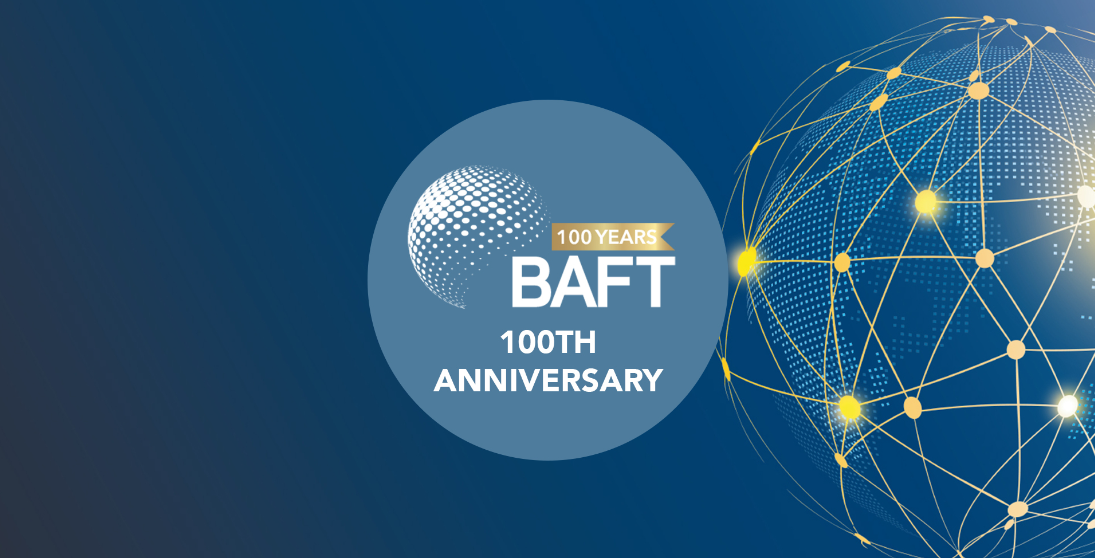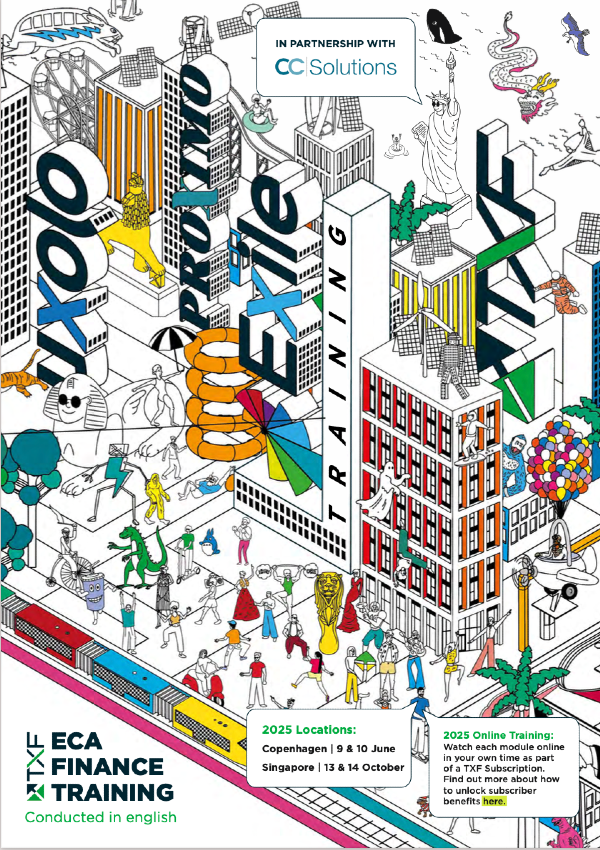Shop talk: BAFT on turning one hundred
TXF spoke to Steve Bash in the wake of the Bankers Association for Finance and Trade’s (BAFT) centennial celebration to outline the significance of this milestone and what challenges might arise for the trade organisation in a post-Covid world.

 TXF: Steve welcome, and I'm glad you could join us to celebrate the centenary of BAFT, founded in 1921. What is the significance of this milestone?
TXF: Steve welcome, and I'm glad you could join us to celebrate the centenary of BAFT, founded in 1921. What is the significance of this milestone?
Steve Bash (SB): For a trade association that has been able to prove it's value proposition and survive a hundred years, it's a strong statement about the value it provides the membership and the agenda. My first involvement with BAFT was in 1989 when posted overseas and invited by my boss at the time to attend my first BAFT meeting, and join the discussion. The significance of the 100 years, is that it proves that the foundation formed by the founders has value. They were real issues that needed real solutions. It helped US banks to compete more effectively in trade around the world, and then opened the membership to foreign banks to work collectively on common issues, easing and facilitating trade on a global scale, which was very difficult at the time. BAFT had this view from the beginning. What I found out from reading the board minutes, the board and the membership always rejected the concept of expanding into areas that BAFT hadn't established as a strong pillar or foundation, or where the organisation didn't have the expertise and would dilute it's overall purpose. These sorts of decisions all have a lot to do with BAFT reaching 100.
TXF: One of the biggest changes has been the development and implementation of technology. How has BAFT managed to stay relevant during these big changes and support their membership throughout?
SB: The founders knew early on that BAFT had to be relevant and had have a global agenda. It had to have representation from around the world. Unfortunately, until early-2000s BAFT was receiving guidance from certain legislators and others in the government that said BAFT had to have only US banks. It was the view that BAFT would be taken as more credible if only US banks were members. It was clear from the minutes, BAFT had wanted to overcome this perception and after years of discussions with treasury and legislators, finally BAFT felt they would be better off having a global view than having a US view. When BAFT converted the affiliate status to full membership with voting rights to foreign banks, that was a huge milestone. It made the organisation more attractive to foreign banks and to the big banks in virtually every country. The banking community was struggling for collaboration around major issues for a long time - Basel III, capital treatment for trade, and more recently fintech companies. How to cooperate with fintechs to partner with them and not compete. This was critical as neither the banks nor the fintechs could do this alone. The only way was working together and collaborating. Another major collaboration effort between industry players and global banks has been the creation of standards which includes definitions. After this, the road is clear. It helps participation and cooperation, and for a long time banks looked at each other as competitors, but BAFT has really helped the global banking world to appreciate what can be done when people come together.
TXF: What do you think is the greatest challenge BAFT will face in the coming years?
SB: BAFT has proven that it has a voice. I don't think this will change. We don't know the big external challenges, but I have a lot of confidence given the pillars and the history, and BAFT's proven ability to help the industry in times of crisis, this will continue. The biggest challenge in the industry is leadership. It used to be the case that banks used to send people to their international divisions and create this global understanding of how trade worked. Those people would live and work in those countries and come back to their home countries with the practical experience and leadership. Now banks are more inclined to hire local so banks don't get this experience, combined with trade being stagnant in terms of innovation and the amount of young people with skills that can help foster innovation. One of the most important programs is the future leaders program, where BAFT are bringing 30+ accomplished bankers from various banks around the world to come together. BAFT and the industry depends on these people to be our future leaders. The goal is the professional development of future leaders of BAFT, that we can continue to attract the best and brightest, the ones with passion that have a global view, those that can bring the new problem solving and modernising of trade. BAFT has taken it into their own hands to do this rather than leaving it to the individual banks.
TXF: Any final thoughts on the future of BAFT?
SB: It does have a great future. If we had this conversation in 100 years, I think it would be similar to what it is today, and that's a good thing. It shows that BAFT, it's foundation, the purpose, the platform is sustainable and meaningful.





